Like many other medical conditions, epilepsy is largely misunderstood and surrounded by myths and misconceptions which unfortunately lead to stigmatization and mistreatment of people living with it. Some of the more common misconceptions are that the patient has had too much to drink, has been cursed, or that they are possessed by evil spirits that need to be exorcised.
A lot of awareness is therefore needed around the condition so that people living with it are treated like any other members of society, albeit with a manageable medical challenge. Other than stigma and of course the symptoms of epilepsy which include fits, body stiffness, loss of awareness and collapsing, one of the most common challenges that comes with the condition is lack of medication which has to be taken religiously.
Last week, my colleagues and I were at the Kiserem Epilepsy Foundation in Mwihoko to interact with people living with epilepsy and get to see their lives. How they make their living, how they raise their children, how they interact with communities around them and how they can be supported. 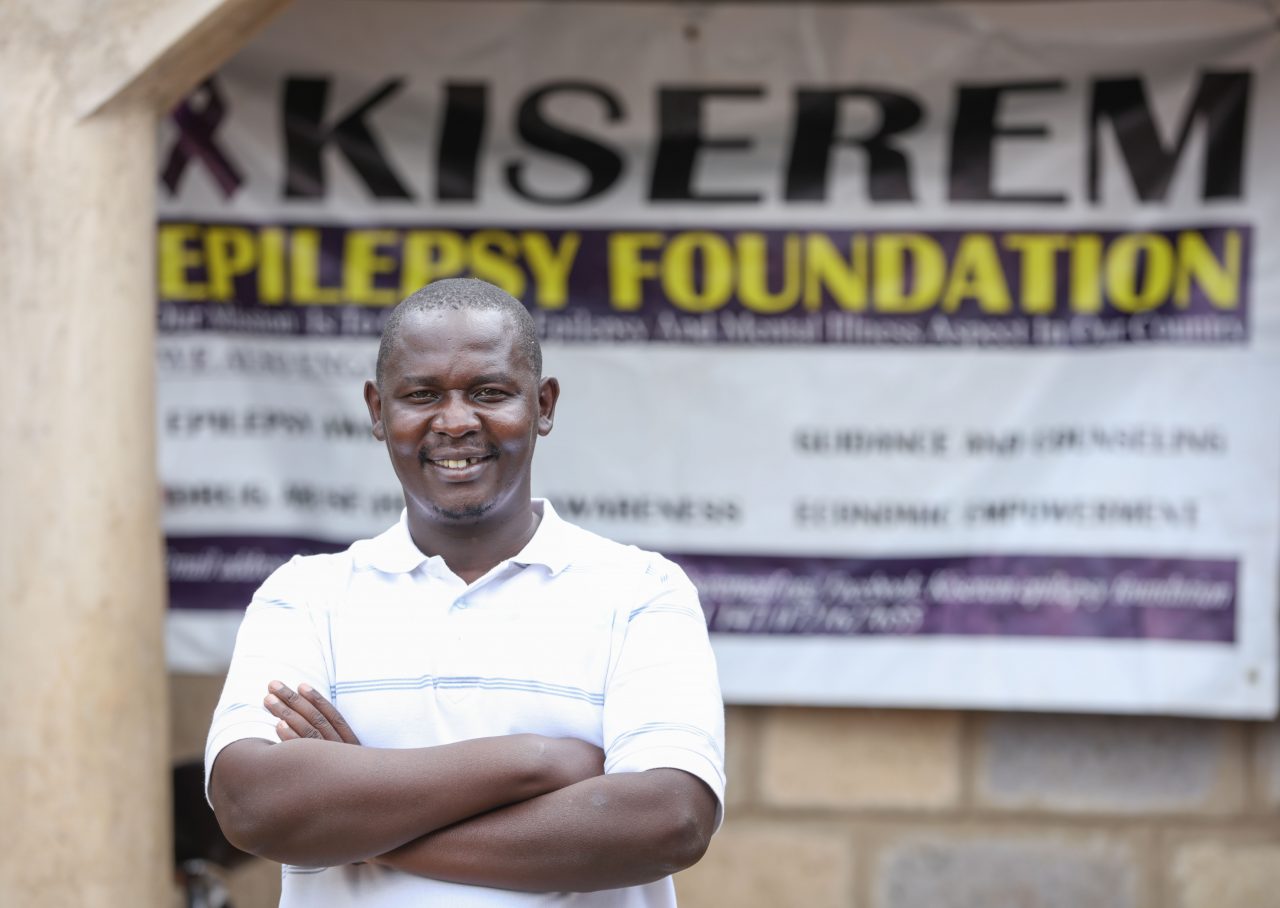
Kiserem Epilepsy Foundation is the brainchild of Fred Kiserem who got epilepsy at the of 25 after developing a cyst in the brain. The challenges he faced, including loss of jobs, drove him to start the foundation to empower others to live as close to normal lives as possible. He registered the foundation in 2016 under the Societies Act to create awareness about epilepsy and amplify the condition to levels where it is well understood and treated with the compassion it deserves.
In addition to giving patients a sense of community integration, the center has so far facilitated medication for over 100 epileptics and equipped them with skills to live by. It has a computer school, a poultry project, a beauty school and a tailoring school which is sponsored by Safaricom Foundation through Ndoto Zetu. Other learners at the center usually pay school fees but those with epilepsy are exempt, and this is where partners like Safaricom Foundation and al-Khair Foundation come in to help out.
The center also runs ‘Boresha Biashara’, which trains entrepreneurial skills and financial management.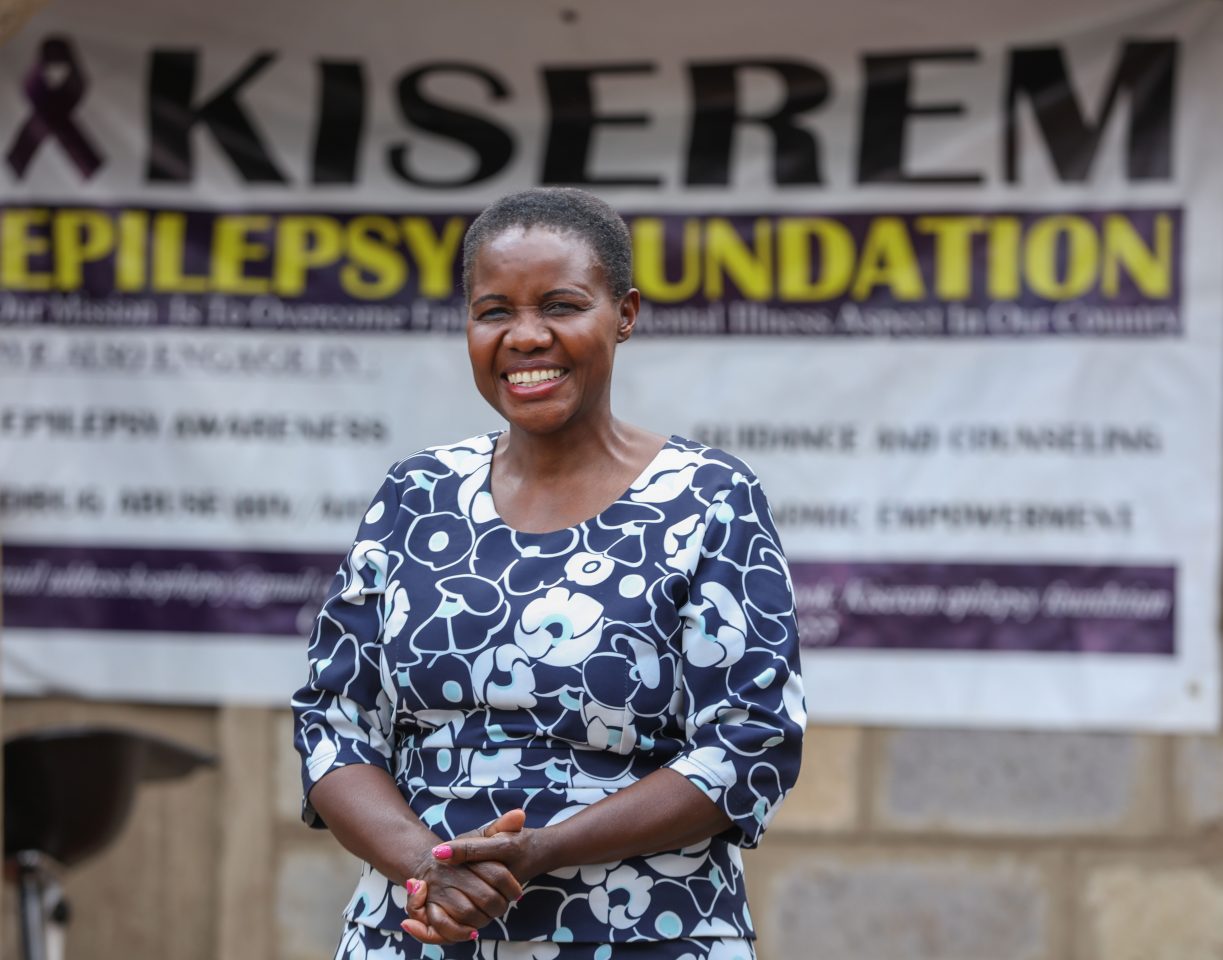
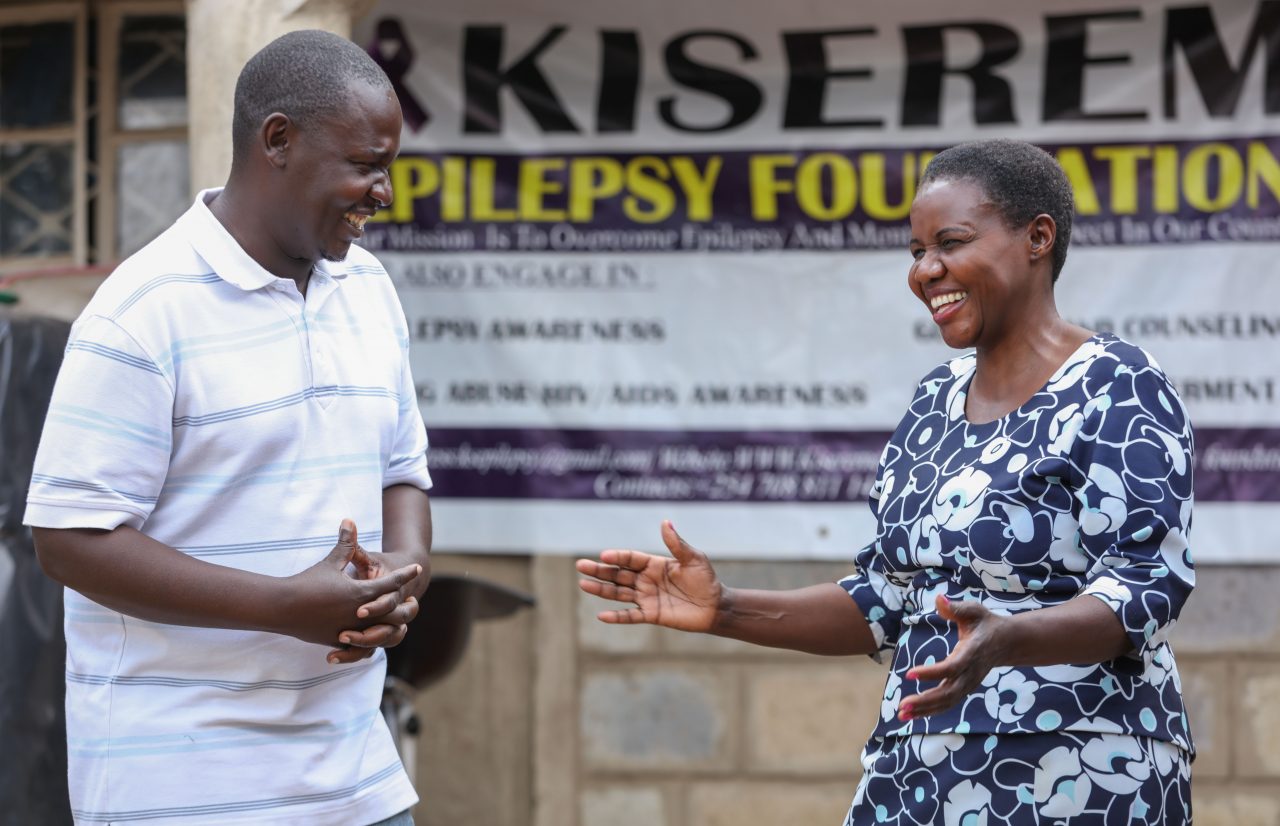
Rose Atieno Kiserem, a caregiver at the foundation and also Fred’s mum shared her experience in dealing with epilepsy when her son was diagnosed. She urges parents to accept and love their epileptic children above all, and build their self-esteem so that they are well cushioned from societal stigma. That way they will be able to piece their lives together.
She shared that since epilepsy is so little talked about, a lot of people are caught by surprise when they or their loved ones are diagnosed. This often comes with initial denial. Epilepsy is also an expensive condition to live with and so recognition of the same by Government and policy change towards availability of medication and other services around it are needed.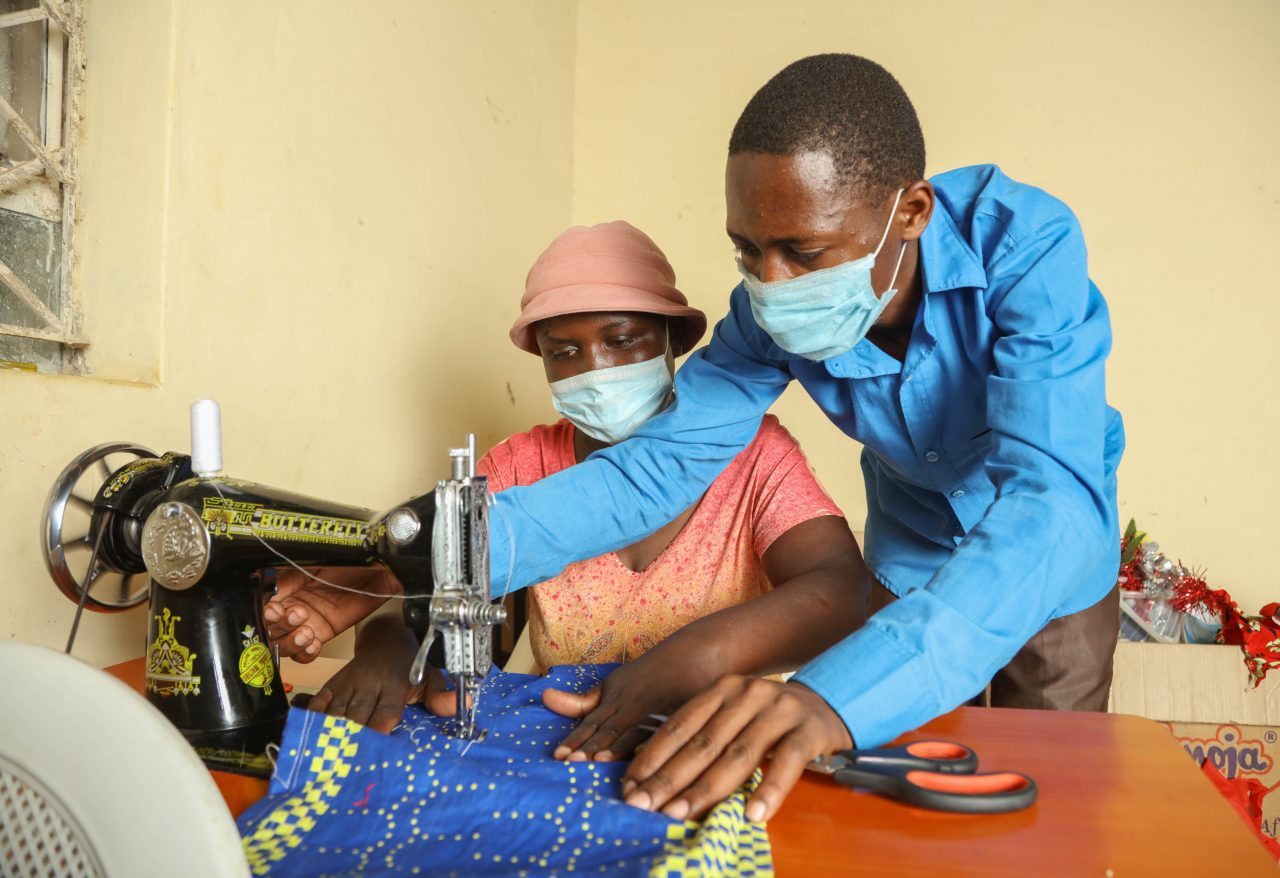
One beneficiary we met at Kiserem is 27-year-old Harriet Nyakio. Nyakio was hit by a car at the age of four, stayed in ICU for over three months and came out of that with epilepsy. She started having seizures soon after leaving hospital and was officially diagnosed at Kenyatta National Hospital. Along with the active symptoms of epilepsy, she lives with general weakness on the whole left side of her body.
Nyakio whose epilepsy triggers are anger, extreme happiness and lack of medication has been through such a tough life for a lady so young. She has been homeless for years in the past and has been sexually assaulted by a family member.
She is now married with 2 children and having done tailoring at Kiserem, the center has given her a sewing machine to take home. This sewing machine is now her source of income and she’s able to fend for herself. Her dream is to have household items to sell for additional income. She loves the community at Kiserem and feels that she is among family whenever she’s there. For someone whose actual family ties are rather sketchy, she feels that the center grounds her and she’s very grateful for that. She’s also grateful to Safaricom Foundation for facilitating her sewing business.
To those who stigmatize epileptics, she asks them to more of learn about the condition. Nobody wants to be sick and besides, epilepsy can set in at any age.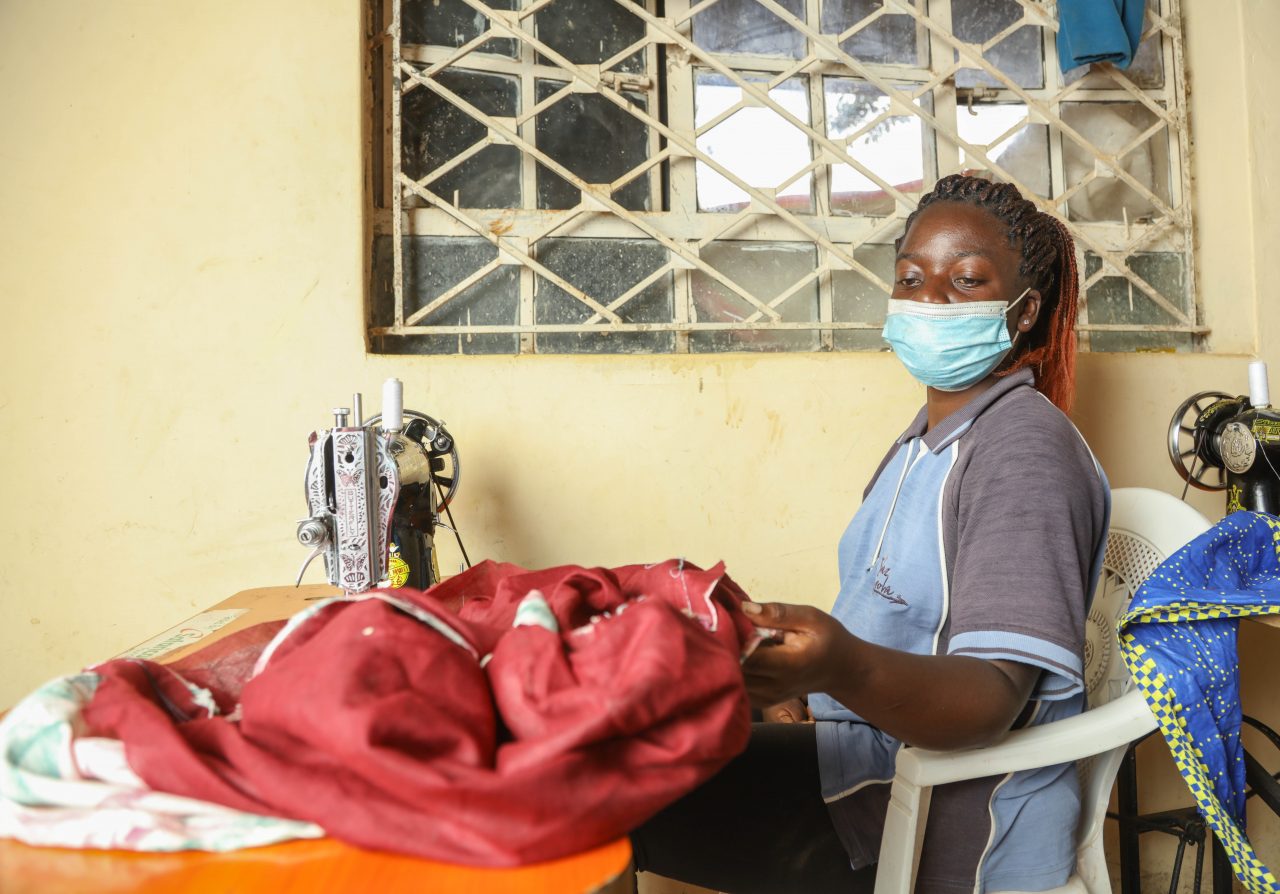
We also met Mercy Atieno who is learning tailoring at the Kiserem. She is however slowed down by the fact that her right hand is quite damaged by the neurological effects of epilepsy. Mercy is usually escorted to the center by her very supportive mum and they are both glad for the fulfilling sense of community that she gets.
As mentioned earlier, the center has other learners doing different things. Like 26-year-old Lilian Wangui from Githurai 45. Lilian, a second born in a family of four dreams of owning her own salon once she’s done with the hair and beauty course that she’s pursuing at Kiserem Epilepsy Foundation.
Lilian has also been through quite a lot in her young life, including having to shift from boarding to day school and losing jobs due to severe and frequent seizures. The most heartbreaking of all is that she has been through sexual abuse in the hands of someone known to her. He took advantage of her while she was unconscious.
Lilian’s triggers are extreme climate change, anger, menses, extreme happiness, stress, skipping meals, and the surest of all skipping medication.
Her message to other people living with epilepsy? “You are stronger than the disease”
These are just a few cases and yet they show clearly how the issue of medication for epilepsy should be top agenda and the condition as a whole should be given sharper focus. We laud organizations like Kiserem Epilepsy Foundation for the work they’re doing, and partners like Ndoto Zetu for helping to facilitate.
